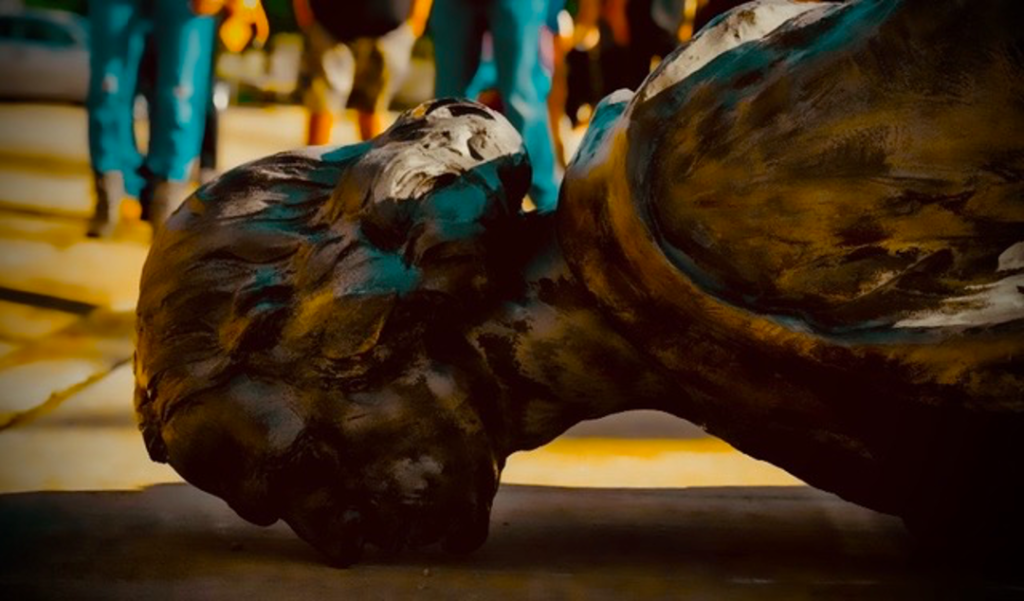Español

RECASTING THE COMEDIA:
CONFRONTING THE CHALLENGES OF THE 21ST CENTURY
AHCT / ALMAGRO
July 5-11, 2021 (Virtual)
2021 AHCT /Almagro Symposium (Virtual)
July 5-11, 2021
Refundir la comedia desde los retos del siglo XXI
Recasting the Comedia: Confronting the Challenges of the 21st Century
The Association for Hispanic Classical Theater‘s virtual symposium is taking place in tandem with The Almagro International Classical Theatre Festival in July 2021.*
Objectives: This conference will promote dialogue between scholars and theater practitioners in order to bridge the traditionally-perceived divide between disciplines. Participants will:
- study new ways of interpreting the comedia
- promote and expand collaborations between scholars and theater practitioners
- discuss new ways of disseminating the study of the comedia through innovative approaches
- build bridges among disciplines and collaborate on interdisciplinary projects
Panels will be organized as working groups. Sessions will not overlap, giving participants the opportunity to attend all presentations. Panels will function as round tables to discuss pre-recorded/pre-circulated papers uploaded to the conference website. Participation can be in Spanish or English.
Working groups will focus on topics detailed below. The goal of these groups is to have in-depth discussions about specific aspects of adaptation, dissemination, translation, performance and reception of the comedia.
There will be three working group sessions. Questions for each session have been drafted in order to provide ideas for the discussion. However, the discussion is not limited to these issues and we welcome other ideas related to these topics.
- Accepted participants will be required to upload a video/audio (preferred) or written paper no later than two weeks before the conference. Note: papers not received a minimum of 14 days before the conference will be removed from the program.
- During the conference, three days will be dedicated to round table discussions (one day per theme) led by the discussants and one or two facilitators. Everyone is invited to read or watch the papers beforehand and participate in the discussion.
- In conjunction with the Festival we are organizing round tables with artists who will be presenting their work, as well as other activities.
- Two days will be devoted to keynote speakers.
- Theater Practicalities: Innovation, translation and pedagogical collaborations
How can performance, experiential learning and outreach contribute to students’ better understanding of the Spanish comedia? How can digital media be used to enhance learning outcomes? How can practitioners and scholars collaborate to make the study of the comedia more accessible and effective to students? What are the main challenges and limits of translating for the English-speaking stage? What decisions are practitioners making when translating their own Spanish adaptations into English and how these are transforming their productions?
- The Intersectional Comedia: Questions of Race, Gender, Class on the Stage
How are non-centered groups represented in the comedia? Where do these categories converge and diverge? How can we tackle these questions about the comedia through the lens of the twenty-first century? How does the comedia’s social context influence our perception of gender/race/class when we read or view it? What non-canonical works should we be incorporating in our classrooms and our investigations that might pose answers to these questions—or more questions, themselves? In terms of performance, is it still possible to have all male/all white companies? What concerns should companies take into consideration when they perform characters of the Other? Is it still valid to employ terms such as the “Other” or the “Subaltern” or do we need to find new theoretical approaches to discuss current performance practices and/or readings of the comedia as it relates to diverse characters?
- The Comedia under Siege: Confinements, Digitalization, and the Future
This working group intends to examine a variety of proposals that have been carried out in Spain and Latin America in order to keep the comedia afloat during a rigorous confinement and to evaluate the contributions of these creations. It is important to discuss what this implies for an inherently live medium such as the theatre. How do we process this virtual filter applied to the performance of classical texts? How companies have coped with more than three months of closure and what are the implications of performing with a reduced capacity? Has COVID-19 made us rethink an alternative form of theatre?
Submission of proposals:
- Abstracts should not exceed 300 words, including name and institutional affiliation. For graduate students, full papers must be submitted along with their abstract.
- To submit an abstract, visit: https://forms.gle/xEKGneyZx1Mh2pFa8 and fill out an abstract submission form.
- The deadline for receipt of all submissions (abstracts and graduate student papers) is December 15th, 2020.*
- Interested panelists should submit individual abstracts and note which of the sessions they are most interested to participate in.
* Please notice that space is limited and all submissions will be peer-reviewed. The committee will notify participants of their decision by January 30, 2021.
Additional Information:
***Registration price for the conference will be $125 (presenters)/$90 (grad students)/$50 (auditors) and includes: attendance to all conference sessions, streaming of virtual performances, keynote speakers, and other activities.
***You must be a member of the AHCT to register for the conference. Current membership dues are $65 (or $120 for two years) for faculty and $55 (or $100 for two years) for retired members, independent scholars and students.
Publication Opportunities: We have secured an issue with Comedia Performance for the 2022 year (volume 19), which will highlight the topics of this conference. All regular stipulations of the journal will be followed. We will provide further details to those participants whose projects are accepted for presentation in Almagro and select papers will be published.
Questions can be sent to: Esther Fernández (ef14@rice.edu)
Conference presenters must be members of The Association for Hispanic Classical Theater.
Conference co-directors:
Erin Cowling (MacEwan University), Esther Fernández (Rice University),
Glenda Y. Nieto-Cuebas (Ohio Wesleyan University)
Artistic Coordinator:
Lorenzo Pappagallo (Xper Teatro: xperteatro@gmail.com)
Committee Members:
Melissa Figueroa (Ohio University), Mina García (Elon University),
Tania de Miguel Magro (West Virginia University)
 |  |
